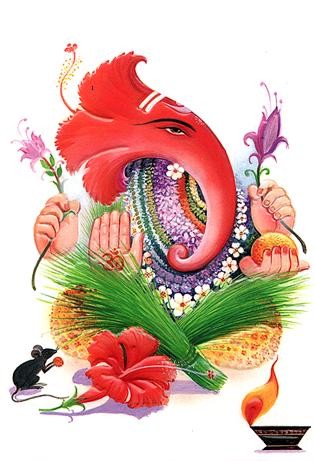Telugu translation as stress buster
We’re at lunch at Masala Bay at the Taj Land’s End and Baru Rao takes a swig of the chaas both of us have ordered as he says, “Pleasure seems to make Indians feel guilty — we need to get out of that.” A moment later, he gasps in anything but pleasure and calls for the maitre d’.
I’ve already had a sip of the concoction and know what the CEO of Capgemini Consulting is going through. This restaurant obviously takes it’s name seriously and the chaas is loaded with spices, mostly green chilli. “I’m from Andhra and this thing is too hot even for me,” Rao tells the waiter, as the deadly drink is taken away.
The 48-year-old Rao is a child of the knowledge economy, a mild mannered intellectual who credits the IT industry with opening up a world of opportunity for a “simple young engineer from Warangal”. He’s spent eight years working in the USA and Switzerland before returning home to India, and now he’s taken up extra-curricular activities like doing a PhD on “outsourcing in software maintenance” from Mumbai University and translating the Ramayana into Telugu.
“The Ramayana has fascinated me since I first read Rajaji’s version at the age of seven,” he says. “Having an absorbing hobby of this kind helps take away the stress of work.”
The Sundarakanda consists of 600 poems, and Rao worked on the project over the weekends for a year. “I enjoy the sheer poetry of the Ramayana,” he says. “What also interests me is the insights it gives on the dilemmas of what constitutes right and wrong. They have great application in today’s workplace.”
Rao’s approach to the Ramayana is intellectual, rather than religious, and he eschews participating in the numerous “discourses” that are organised on the epic, saying that these tend to be “too pedagogic.” But in the eight years that he’s lived in Mumbai, Rao’s hobbies have put him in touch with numerous people outside of the corporate world. His closest friends are academicians, social workers and, of course, those who are into dissecting the Ramayana.
Rao’s wife works at the Indian Institute of Technology, Powai, and his two sons, Aditya and Anant are in the 11th and 7th standard where “they are just getting into serious education.” Last year, the family vacationed in Europe and this year, the plan is to explore the far East.
The family lives in Lokhandwala, Andheri, a good one-and-a-half hour drive from the Capgemini offices in Vikhroli, which gives Rao ample time to read. “I like Lokhandwala because it’s a happening kind of place, with lots of streetlife and people moving around all the time,” he says.
I’ve already had a sip of the concoction and know what the CEO of Capgemini Consulting is going through. This restaurant obviously takes it’s name seriously and the chaas is loaded with spices, mostly green chilli. “I’m from Andhra and this thing is too hot even for me,” Rao tells the waiter, as the deadly drink is taken away.
The 48-year-old Rao is a child of the knowledge economy, a mild mannered intellectual who credits the IT industry with opening up a world of opportunity for a “simple young engineer from Warangal”. He’s spent eight years working in the USA and Switzerland before returning home to India, and now he’s taken up extra-curricular activities like doing a PhD on “outsourcing in software maintenance” from Mumbai University and translating the Ramayana into Telugu.
“The Ramayana has fascinated me since I first read Rajaji’s version at the age of seven,” he says. “Having an absorbing hobby of this kind helps take away the stress of work.”
A voracious reader of Telugu literature, Rao earlier wrote — and published — articles, short stories and poems in his native language. Now he’s translated the సుందరకాండ (Sundarakanda )— that part of Tulsidas’s epic that begins with the search for Sita and ends with Hanuman finding her in Lanka — from Awadhi, a language he’s less than familiar with.
The Sundarakanda consists of 600 poems, and Rao worked on the project over the weekends for a year. “I enjoy the sheer poetry of the Ramayana,” he says. “What also interests me is the insights it gives on the dilemmas of what constitutes right and wrong. They have great application in today’s workplace.”
Rao’s approach to the Ramayana is intellectual, rather than religious, and he eschews participating in the numerous “discourses” that are organised on the epic, saying that these tend to be “too pedagogic.” But in the eight years that he’s lived in Mumbai, Rao’s hobbies have put him in touch with numerous people outside of the corporate world. His closest friends are academicians, social workers and, of course, those who are into dissecting the Ramayana.
Rao’s wife works at the Indian Institute of Technology, Powai, and his two sons, Aditya and Anant are in the 11th and 7th standard where “they are just getting into serious education.” Last year, the family vacationed in Europe and this year, the plan is to explore the far East.
The family lives in Lokhandwala, Andheri, a good one-and-a-half hour drive from the Capgemini offices in Vikhroli, which gives Rao ample time to read. “I like Lokhandwala because it’s a happening kind of place, with lots of streetlife and people moving around all the time,” he says.
Courtesy: Economic Times



0 Comments:
Post a Comment
<< Home